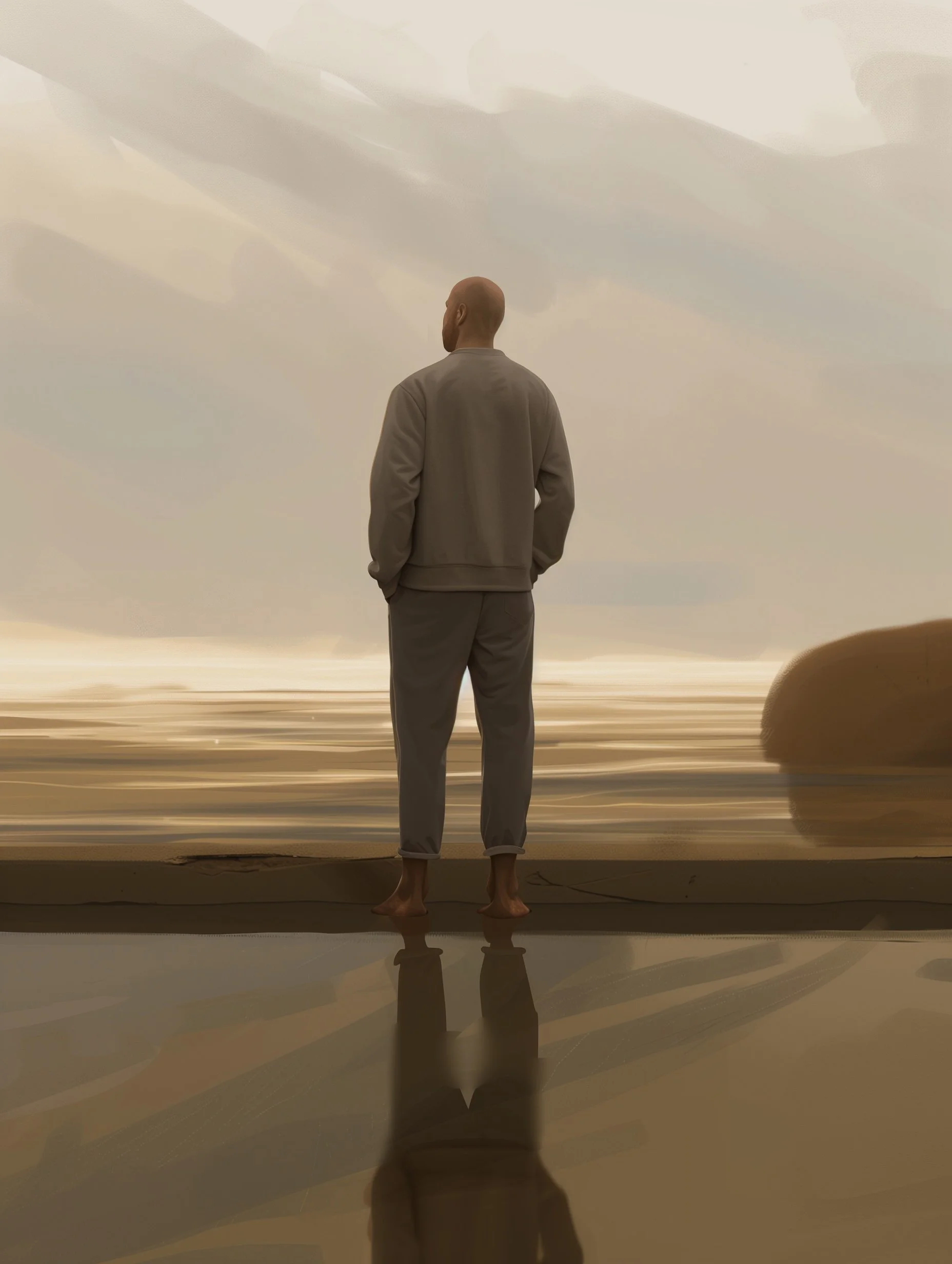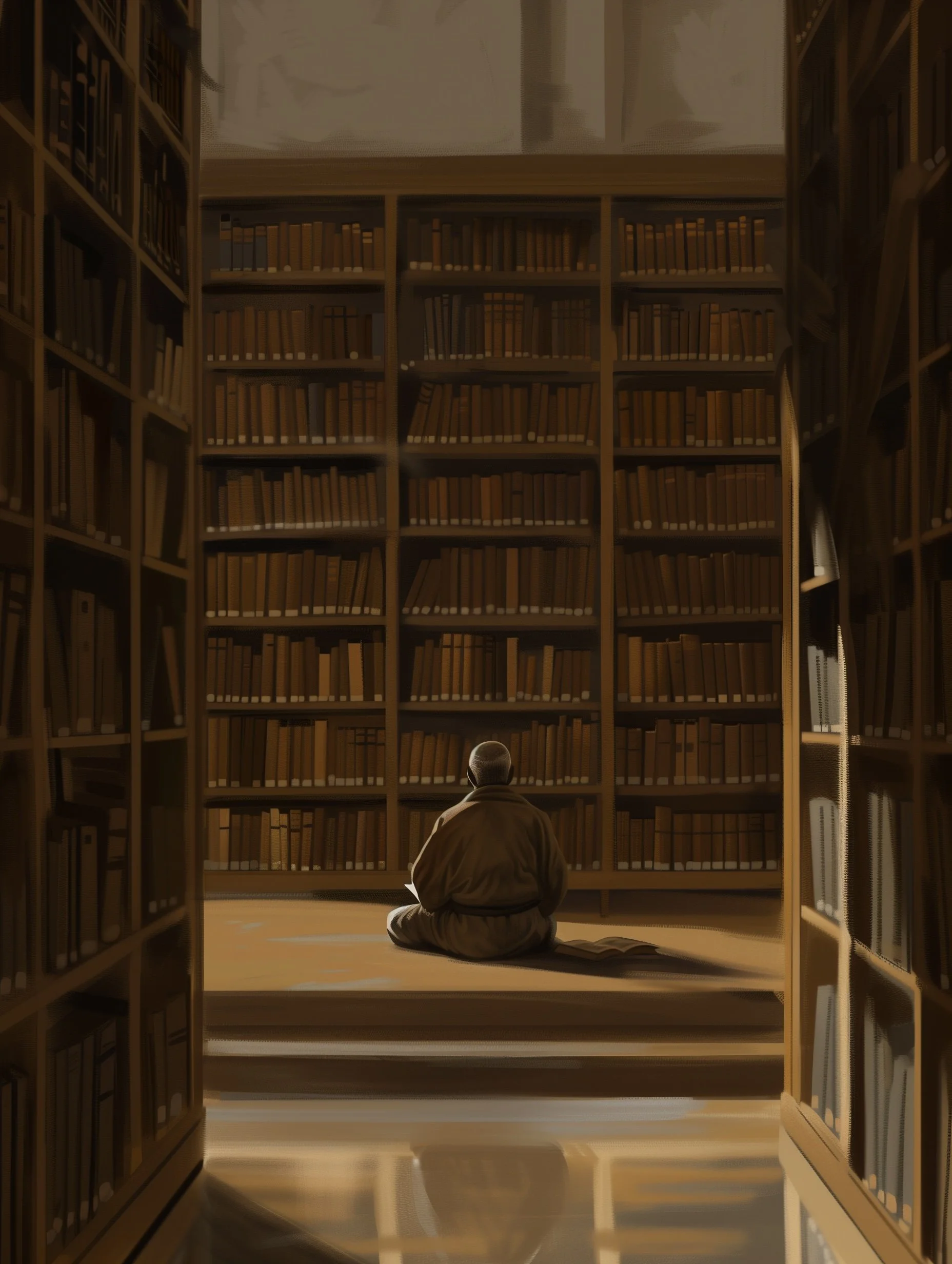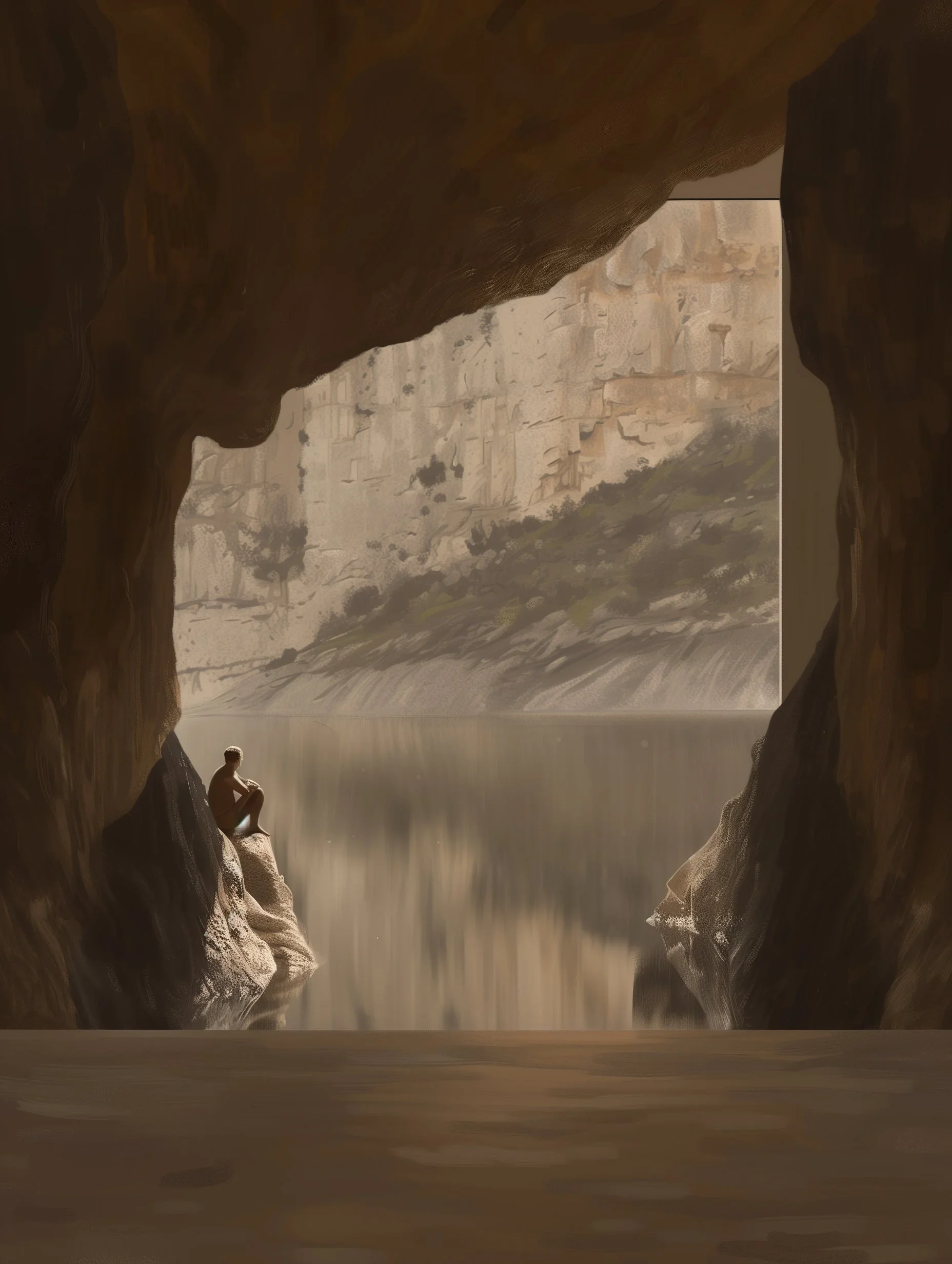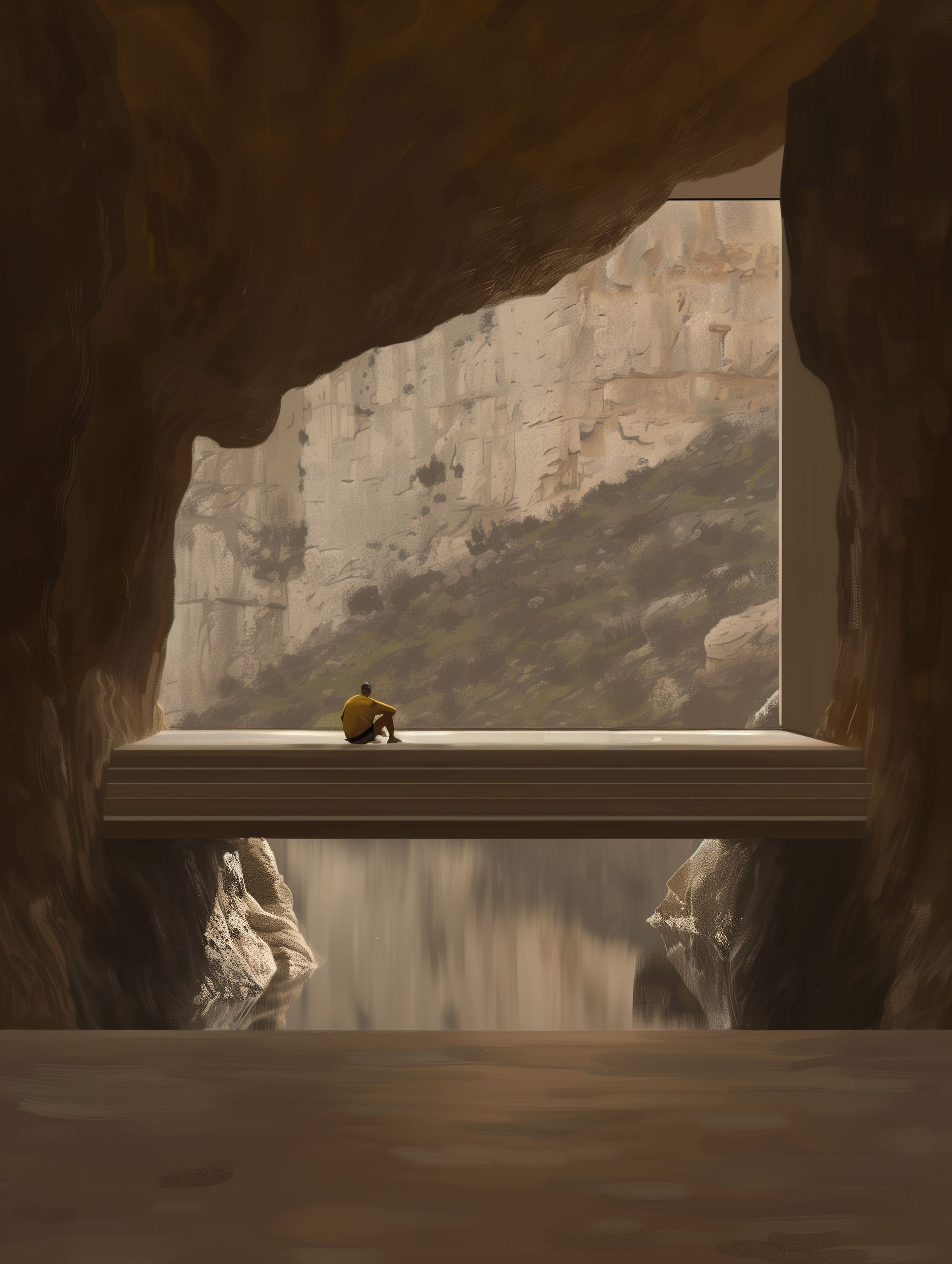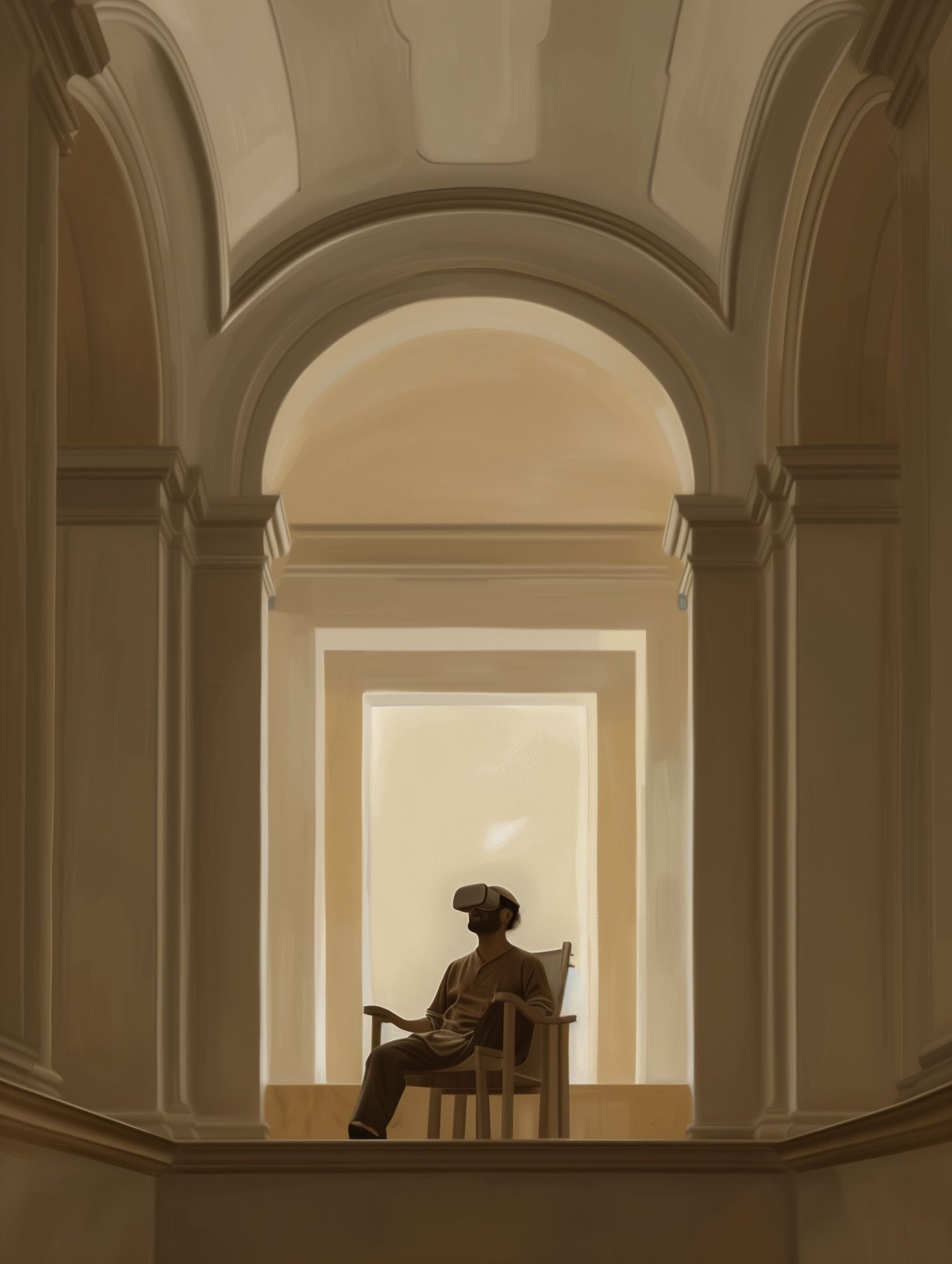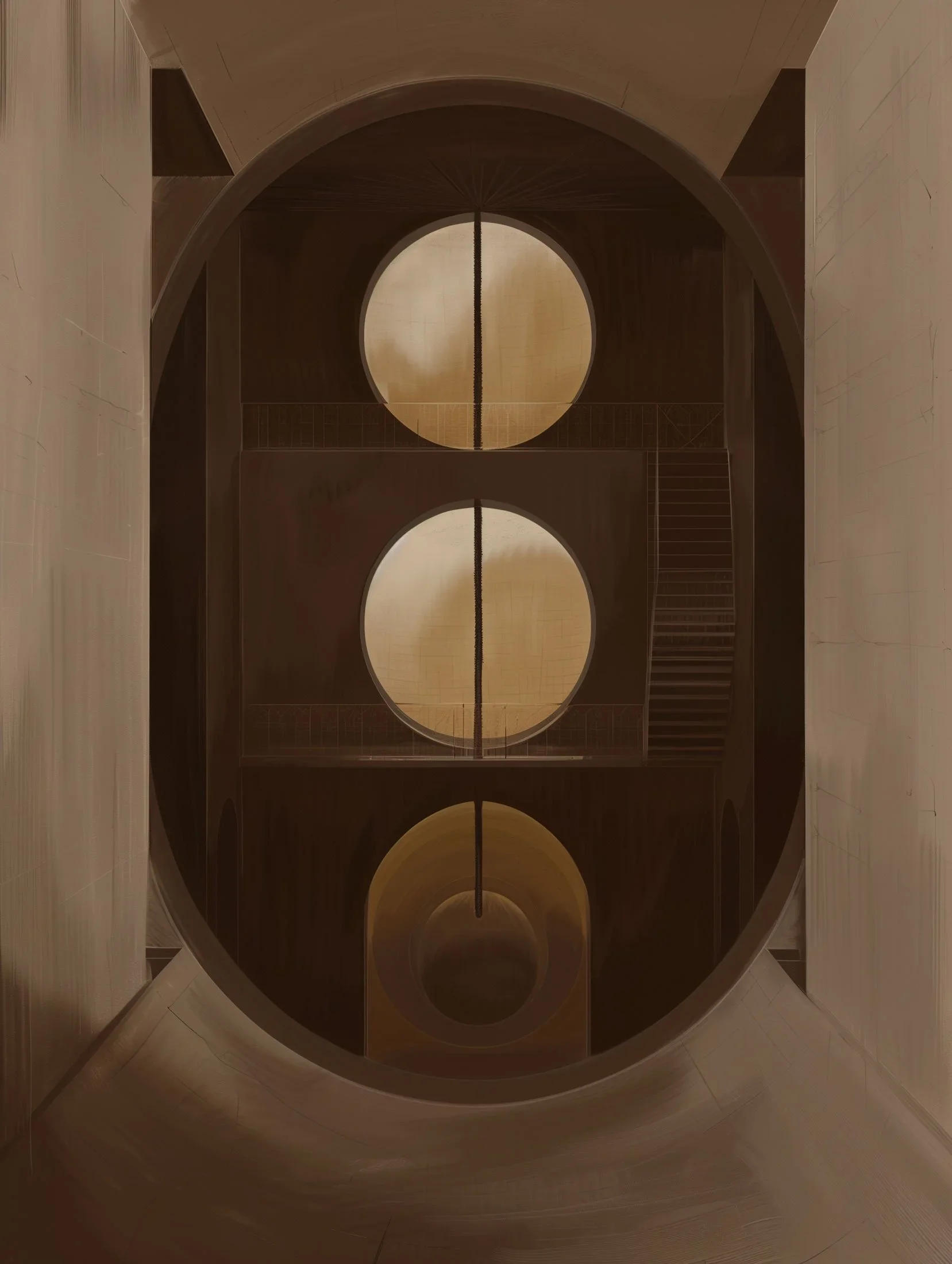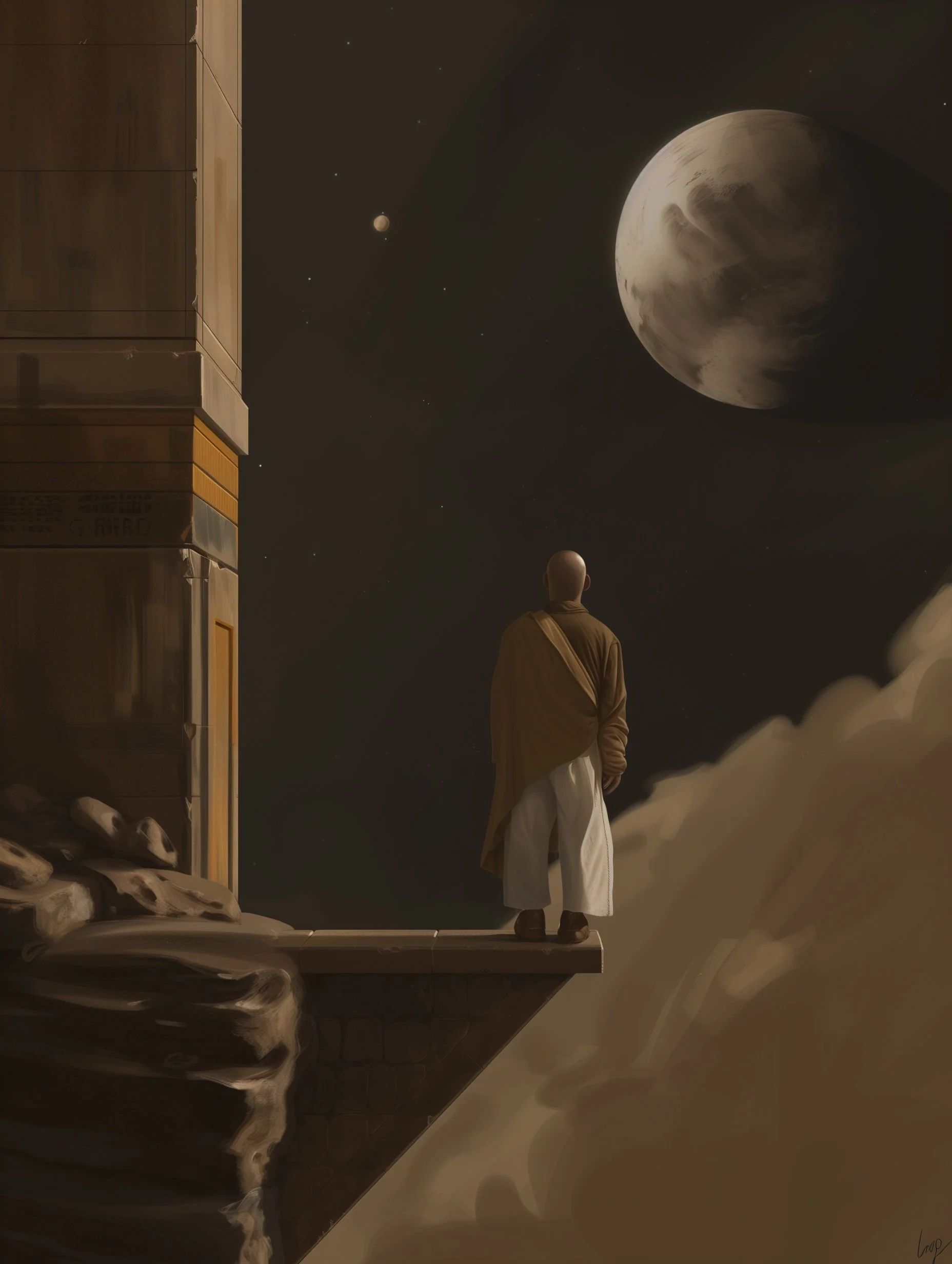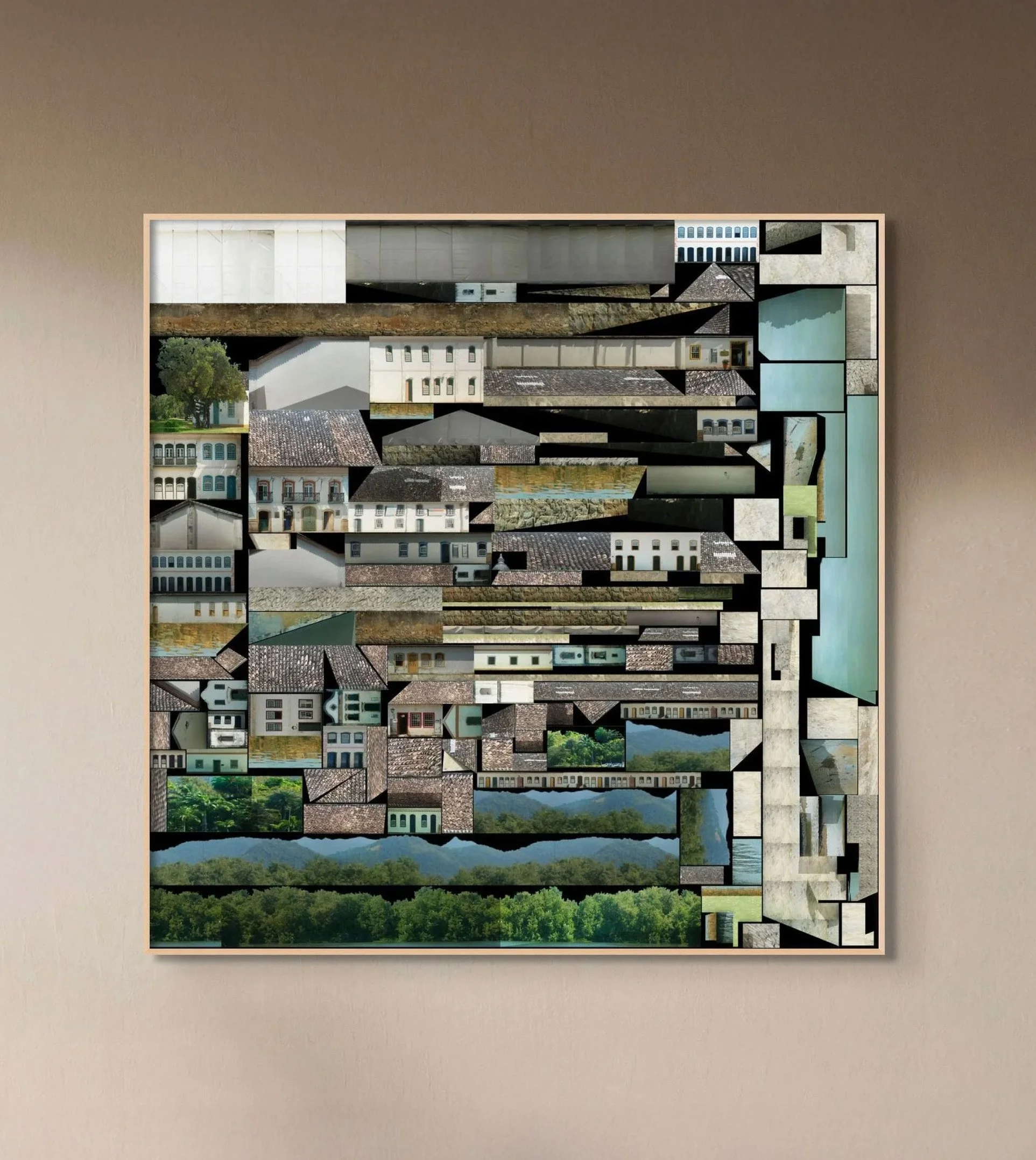REFLECTIONS
Field Notes & Essays
A journal of field notes, annotations, essays, and art — lived fragments, questions, and creative practices exploring what happens when perception shifts. Reflections that expand the experiment without claiming final answers.
FEATURED ESSAY
All | Field Notes | Annotations | Essays | Art & Design
Awakening as Dream: Echoes Across Traditions
From Buddhism to Advaita Vedānta, Christian mysticism to A Course in Miracles, seekers have long compared awakening to waking from a dream. This Journal Annotation revisits those echoes, reminding us that innocence and lucidity were named long ago — and remain ours to test in the experiment of We The Dreamer.
Is Awakening the Next Human Milestone? A Secular Experiment in Shared Mind
What if awakening isn’t mystical at all, but a shift in perception available to anyone? For centuries, awakening was framed as a rare event for saints or monks. But suppose it’s the next human milestone — as ordinary as learning language or using tools. In an age of fractured identities, digital overload, and deep division, maybe awakening isn’t indulgence but necessity. We The Dreamer offers a secular experiment in perception: simple practices, shared fieldnotes, and no dogma. The question isn’t whether to believe — it’s whether to test. Try one practice, notice what shifts, and see if awakening belongs in daily life, not just in temples.
Consciousness First? Rethinking Science’s Hard Problem
Why does matter give rise to experience at all? The Dreamer Project treats this question less as puzzle to solve than as scaffolding for inquiry. What changes if we live as if consciousness is first?
A Studio of Questions
Is awakening personal or collective? One consciousness or many? Free will or only the choice to remember we are Dreamer? This annotation frames the Dreamer Report as a studio of questions, where each log is not a conclusion but a vantage point to test together.
Why Shifts of Perception Matter: Seeing Mind as Cause
Perception is not decoration — it is the practice itself. Traditions from Vedānta to Zen teach that awakening begins with vision: from world as cause to mind as cause, from separation to interlinked selfhood. This annotation explores why perception-shifts matter most in a consciousness-first experiment.
The Essence of 'Design for Nothing': Why "Design" and why "for Nothing"?
This blog post delves into the origins of 'Design for Nothing,' a practice that integrates elements of Advaita Vedanta, Zen Buddhism, Taoism, and 'A Course in Miracles' to loosen ego’s grip and glimpse the possibility of a shared field of mind. Discover the story behind the choice of the term "design" and how it shapes the philosophy. Learn how to create an inner space for 'nothing' and experience profound shifts in perception.
Is the World an Unwinnable Game?
This blog post explores the analogy of the world as a complex virtual game designed to make us experience separation from our true Self. It examines nondual philosophies such as Advaita Vedanta, Taoism, Buddhism, and 'A Course In Miracles' (ACIM), traditions which suggest the world may be less fixed than it appears. The post discusses the importance of spiritual relationships and collective awakening, using meditation and self-inquiry to transcend the illusion of separation and realize our true nature as an indivisible consciousness.
The Essence of ‘Design for Nothing’: Understanding Nondual Reality
This blog post by Martin Lenclos delves into nondual philosophy and its impact on understanding reality and the self. Drawing from texts like the "Yoga Vasistha" and teachings of Advaita Vedanta, it explores how meditation and visualization practices can help testing whether the sense of separation loosens. Lenclos also discusses the intersection of ancient philosophies and modern consciousness studies, emphasizing the concept of the One Mind and the practice of "Design for Nothing" to achieve a state of peaceful awareness.
'Piece of Mind': Integrating Scientific Revelations with Ancient Wisdom
‘Piece of Mind’ is not just a mantra but a gateway to seeing the world and ourselves as part of an interconnected whole. Inspired by the latest in consciousness studies and rooted in ancient spiritual traditions, it encourages a transformative journey from perceived separation to intrinsic wholeness. This practice influences not just personal well-being and creative expression, but also reshapes our interactions with others and our approach to the challenges of modern life. Join me as we delve deeper into integrating this subtle yet surprising understanding into daily living, fostering a sense of peace and unity that extends beyond the self.
L'Enclos, a Creative Practice.
L'Enclos is not just a creative practice; it's a journey toward spiritual liberation through design. Drawing inspiration from nondual thought and Eastern philosophy, each project encapsulates a unified aesthetic aimed at complementing and reflecting one's aspirations. Dive into a portfolio where every creation is a tool for introspection, challenging norms, and fostering mindfulness. From transcendent product designs to experiential spaces, L'Enclos ventures into the realm of conceptual healing objects and monastic interior styling. Join us in redefining reality through minimalist design and profound personal narratives.
Improve Your Interior Life
Step into the serene sanctuary of a New York City apartment transformed into a tranquil oasis. Join the journey as the space undergoes a profound redesign, guided by minimalist principles and a desire for escape from the urban hustle. Discover the transformative power of thoughtful design choices, from soundproofing to monochromatic palettes, and how they cultivate a sense of inner peace and reflection in the heart of the bustling metropolis.
Vision-Bending Practice
Delve into the depths of unity and tranquility with the 'Piece of Mind' mantra, a subtle play on words that guides seekers towards inner peace. Explore how this mantra, rooted in Eastern wisdom and modern science, fosters a shift from separation to oneness, offering solace amidst life's complexities.
Newsletter Archives (FR Only):
October 15
